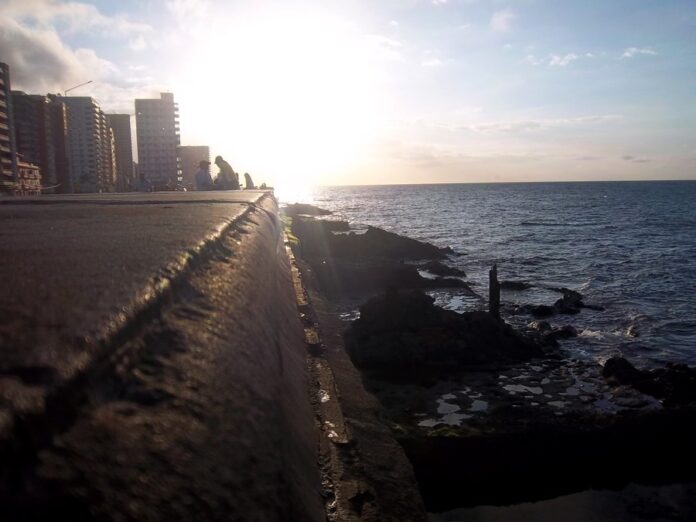
By Veronica Vega
HAVANA TIMES – When I see houses in danger of collapse, I remember Juan Carlos, a friend who is no longer in Cuba.
He lived 200 meters from the Malecón boardwalk, in Centro Habana, and one fateful day the roof of his house collapsed. Although he and his family had to be rescued by firefighters, luckily there were no deaths or injuries. But the collapse of what had been his home since childhood changed his life forever. Juan Carlos was an illustrator for an independent media outlet, and from then on, he waited for the hour when the sun was not shining on the roofless house to be able to work.
I don’t know why I am so attracted to buildings in ruins. Maybe because they expose the internal, like an X-ray. Because they are confessions of a failed dream, without any remnants of vanity. It’s as if I can hear the voices that inhabited them, now scattered in space and time. People who, like me, were born, grew up, and wove a mental path (glorious, of course), within that exciting menu the world offers and, in youth, seems inexhaustible.
At the same time, seeing how the sky triumphs over concrete makes me think of the death of bodies and their disintegration. It’s not sad if we think of it in terms of liberation. Nature also recovers what it had lost, and seeing so much green on crumbling walls, it’s impossible not to recognize the power of the invisible.
Without his house, my friend had no choice but to exile himself, and fortunately, through a complicated itinerary that included the islands of Suriname and Guyana, he managed to reach France and establish himself as a political refugee.
Now, sometimes I see him posting photos of sunsets on Facebook taken from his current window in Ingré, a district of Orléans. I think of the windows that became useless after the collapse of his house in Centro Habana.

I think of the empty houses, due to partial collapses or because their inhabitants emigrated. I remember the documentary “New Art of Making Ruins,” where people living in critically dilapidated buildings in Havana talk about what it’s like to live with the threat of the roof collapsing over your head. The paradox of a refuge becoming a tomb.
For a long time, I haven’t been able to walk along the Malecón without feeling this oppression in my chest. Today I think of Calle de las Animas, which I once walked with a friend looking for the house of the writer Reina Maria Rodriguez. I remember the term I read in a text of hers: “the exodus.” An expression that each Cuban generation takes as its own and exclusive.
I remember the time when a group of friends and I insisted on giving a future dimension to living in Cuba. Amid the personal upheaval where desires confront the inertia of resisting, each found their path, and today, walking through the downtown streets, I am sure I won’t bump into anyone I know. They are all on the other side of the sea.
As for me, I have followed my compass and also found my course. As absurd as it seems to stay on a sinking ship. And except for these moments when the wreck hits almost physically, I have built a micro-world full of actions that leave no room for melancholy. Or doubt.
Tending to my animals, writing, repairing a cat carrier, a piece of clothing, or any household utensil and whatever can be saved with my own hands.
Duty has the power of urgency. Almost solidity. One must shake off sadness because it is just a mix of incomplete impressions. Like those love songs that trigger nostalgia for lost loves that actually no longer interest us.
Compulsive acts are exhausting, and by nightfall, fatigue is the best ally of sleep. But I understand that it is impossible to live (or even survive) without a vision of the future, even if it’s subconscious. Even if it’s unconfessed.

It happens that decay has the power to hypnotize us. People begin to fixate on the idea of impossibility as a permanent state. Then, if one tries to say that the demolition process will start to reverse, the reactions are unexpectedly violent. Those “here” get aggressive for fear of fueling illusions that they would then see shattered. Those “there” seem to feel that this possibility would suddenly render useless so many sacrifices!
So, how to share a vision that comes in waves and at times is so real that, when I go out into the street, I am surprised not to see yet that budding country where joy and movement will replace depression and stagnation.
For now, I limit myself to walking in silence among unknown people. I watch the sunset from this Malecon that has seen more than any house, collapsed or still standing, in Havana. And I wait silently because any morning could be “the day.”
Read more from diary of Veronica Vega here.




